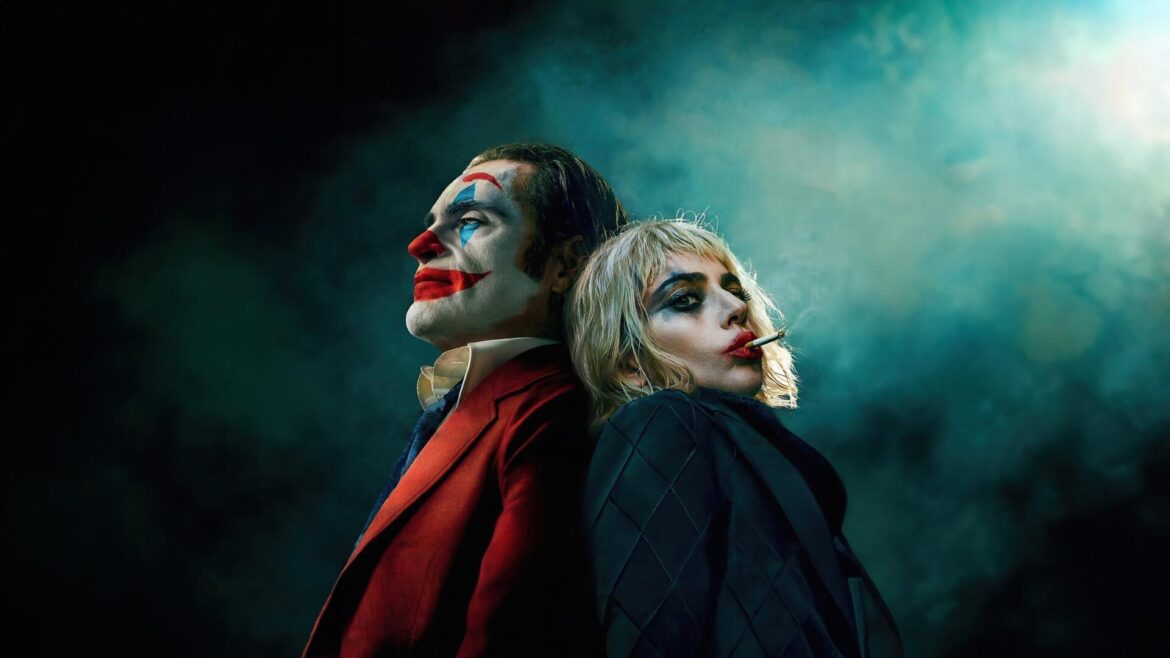
As Todd Phillips’ Joker (2019) starring Joaquin Phoenix hit the silver screens worldwide, the world was rattled. It worked for Arthur Fleck, a man who descends into madness in a broken world, and propelled him to an Academy Award, and the film enjoyed bashing narration that spoke of a particular story of mental health, systemic inequality, and, rather generally, humanity. Of course, the expectations have been skyhigh, starting with its sequel, Joker: Folie à Deux (2024). Instead of living up to the expectation of both fans and critics, the sequel seems not to match up with the promise it sets for its predecessor. Here’s why Joker: Folie à Deux is going to be one of the most underwhelming movies of 2024.
1. An Overly Ambitious Concept That Falls

Flat The conceit of turning Joker into a musical something Folie à Deux actually is by every definitionwas certainly bold. What reads intriguingly on paper, however translates poorly to the screen. Musical moments, visually stylish, feel out of place and jarring for a film purporting to explore sombre themes of insanity, mental illness, and social collapse in such a manner. Gritty realism awkwardly contrasts with surreal musical numbers. Joker (2019) was expected to be dark and realistic; a sequel in the form of a musical alienates a vast number of fans that enjoyed the film for its realistic aspect.
2. A Plot Without End

One of the major problems with Folie à Deux is an insignificant storyline with no end, leaving the movie without closure. While the first film felt contained, highly character driven with a plot that grew from a shapeshifting to be the Joker, the second one feels rather disjointed. The story is loose, spilling into and out of moments of delusions of the madman in Arthur and fantasies for musical numbers and a rather weak love story with Harley Quinn (Lady Gaga). Instead of capitalizing on the momentum established in the first Folie à Deux, which borrowed so heavily from the character development from the first film, this version serves substantively to no purpose, instead becoming a hodgepodge of isolated set pieces.
What should be a pretty good plot point, Harley Quinn, we barely get introduced to the character and her relation with Arthur isn’t that deep to make the connection believable between them.
The romance between Phoenix and Gaga doesn’t spark even; what was the movie’s chance at becoming some kind of awesome, twisted romance is now flat and shallow.
3. Misuse of Lady Gaga

Casting Lady Gaga as Harley Quinn was a good call, what with her robust performances in films like A Star is Born. But film wastes an opportunity to transform the animated/comic book persona of Harley Quinn into a grounded and psychological entity. She goes through madcap swings from playing caricaturepizzo to a victim of a musical arrangement of the film. This tonal inconsistency makes it difficult to become invested in her; there’s just too much she has to talk about related to her tragic backstory, alongside the weird and pointless musical numbers.
It has always been too shallow between Joker and Harley, a toxic dynamic that is layered in a shallow way. This abusive and codependent relationship dynamic was not explored well in the movie, and their relationship is idealized over what should be some kind of dysfunctional relationship without emotional depth or psychological exploration to make it believable.
4. Too Much Emphasis on Music Numbers

Perhaps the most polemical aspect of turning Folie à Deux into a musical is the very basis for doing so itself, not because it’s a surprise twist, but because there happens to be just too much emphasis given to the music numbers here. Where musicals can add another dimension of sentimentality or perhaps open access to a character’s inner workings, here they are more of a hindrance to understanding the story. The movie never takes the musical motif seriously. All along the picture, you have halfbaked numbers breaking up the line of the story without any cultural point or dramatic point. Even at times, they do feel added just to be quirky rather than having a point in the storyline or emotional sense.
The songs themselves are forgettable. Lady Gaga is an excellent voice, but the musical numbers don’t carry in them that sort of emotional weight that one feels like it carries from the classic movie musicals. They do not add meaningfully to the advancement of the plot and do not reveal much to the thoughts of the characters. Instead, they detract from the seriousness and concentration of the movie, leaving the audience bewildered as to what it is that they should feel.
5. Lack of Pace and Editing

Whereas the first film had been professionally paced to culminate into tension, emotion, and accumulation of sense without ever strangulating, the second one fails to maintain a proper momentum. This movie drags on scenic moments that don’t add on to the major plot, and the necessary elements, which would have recoiled in the soul of the audience, flashed upon the screen without giving this movie an even pace that totally cuts off the audience from whatever each of its characters is going through.
All of this is further compounded by the editing: at times, it jarring and painful even as transitions are being made from reality to fantasy, from musical to nonmusical scenes. In this way, there is always a shift in tone and style that makes no audience get attached to the film in the way they should, which undermines the film’s emotional stakes in the end.
6. Lack of Ability to Recapture Gravity of the First Film

But one of the key reasons Joker (2019) has caused all the frenzy was the manner in which it dramatized real life: mental illness, societal apathy, and class disparity issues galvanizing thought and inquiry. Folie à Deux, by contrast, gives into spectacle over substance. Here, there’s less social commentary and more ethereal and indulgent musical moments that speak little about the world.
The result is a film that never reaches the emotional depth, even the portent, of its predecessor. A first Joker suggests a bold statement; Folie à Deux just suggests a wild experiment that has gone sour—a film that sacrifices substance for style.
7. Lack of Clear Vision

Todd Phillips took a bold step in Folie à Deux as something that breaks away from the formula of how a movie should go, for a sequel. The problem and downfall of this film is it does not seem to have a clear vision for what it is trying to do: A movie about being sane? A love story gone wrong? Arthur Fleck’s downward slide to the bottom of Gotham is this most notorious villain? It tries to include everything all at once and only succeeds in not getting anything right.
Where the initial Joker gave off an intelligible, wellarticulated story and themes, it’s an instance where Folie à Deux goes through just the manifestation of ideas. The film would indeed place the audience in a scene that they will be confused with rather than being captivated with.
Conclusion
Joker: Folie à Deux, (2024) promised to be the kind of bold sequeldefying film to carry further the franchise on the success of the first installment. However, it flops because it turns into unfocused narrative and weak characters plus misguided creative decisions. No payoffs come when it is a musical and incoherent themes and vision make this film frustrating and disappointing. The tone of the first has alienated the fans from the shift in tone, and the new fans will then wonder what all the fuzz was about in the first place. What made the first one good was lost as Folie à Deux was so keen to do something else and lost track in trying to be different.
- How Iron Man Becomes Doctor Doom in the Marvel Multiverse
- The Snyderverse Animated Finale: Could Knightmare Be the Justice League Ending We Need?
- The Mummy 4: Brendan Fraser & Rachel Weisz Are Finally Back! What You Need to Know
- Spider-Man 4 Official Update: Tobey Maguire Return Status
- Alice in Borderland Joker Theory: Are Arisu and Usagi Truly Free?


Leave a Reply